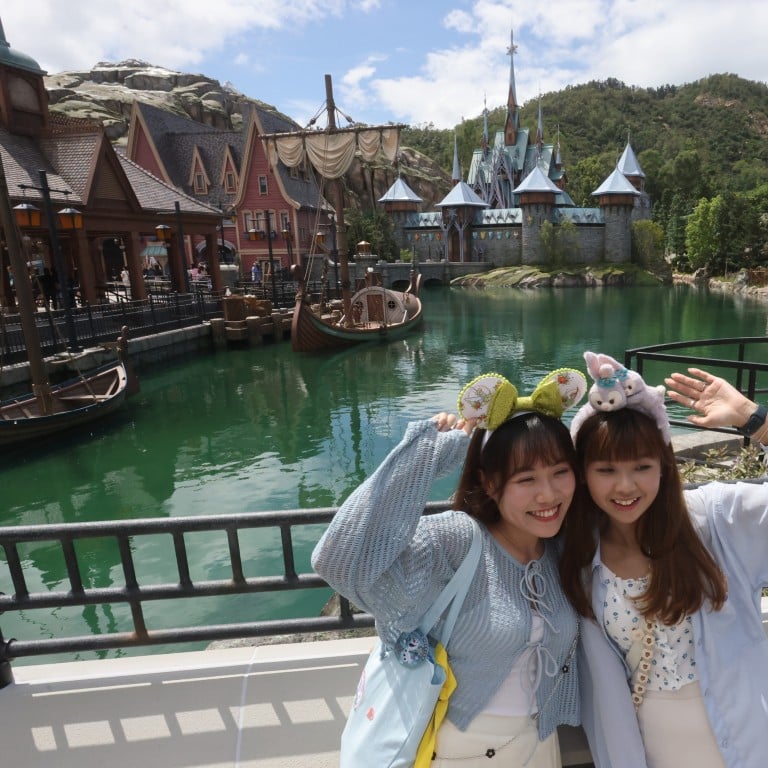Feel strongly about these letters, or any other aspects of the news? Share your views by emailing us your Letter to the Editor at [email protected] or filling in this Google form. Submissions should not exceed 400 words, and must include your full name and address, plus a phone number for verification. I do not see eye to eye with your correspondent about the proposal, “Why not move loss-making Hong Kong Disneyland to mainland China’s Sanya?” (
December 19). We should not lose sight of the indirect financial benefits Disneyland has brought to the local tourism industry. Besides, our Disneyland is still attractive to mainland and international tourists.
If you look at landmarks across the globe, you would find a raft of loss-making attractions. I recently visited
Burj Al Arab and
Burj Khalifa in Dubai, both of which were not expected to be profitable because of their extremely high construction costs. Locals seem to understand that the attractions were never meant to be lucrative in their own right. Their importance lies in their ability to lure millions of visitors to Dubai every year, thereby benefiting shopping malls, hotels and restaurants nearby.
By the same token, visitors to Hong Kong Disneyland are likely to spend an extra day or two in Hong Kong, visiting other attractions, restaurants and shops in the city. We cannot judge
Disneyland’s worth merely by its revenue.
I myself had returned from Guangzhou to Hong Kong, and visited Disneyland for the New Year countdown a few days ago. While it is the smallest Disneyland in the world, it managed to keep me busy the whole day. Even with a “fast pass” to most of the attractions as well as extended opening hours for New Year’s Eve, I could barely finish going for all the rides and watching all the shows. So, Hong Kong Disneyland’s size is not the problem.
On the mainland, I see social media posts comparing the parks in Hong Kong and Shanghai, and noting that the former is less crowded and offers a better tourist experience. The newly opened
World of Frozen is also attracting the eyeballs of our mainland friends, making our Disneyland a unique one to visit even with the presence of a much larger one up north.
As our city’s tourism industry is gradually recovering from the impact of the pandemic, doing away with Hong Kong Disneyland would be just rubbing salt in the wound.
Anson Chan, Guangzhou
New Year’s transport chaos does tourism hopes no favours
A mainland friend of mine who came to Hong Kong to see the New Year’s Eve fireworks was not impressed, to put it mildly, by the
transport chaos at the border.
The year’s countdown at Victoria Harbour drew almost 480,000 people, including nearly 196,000 visitors from the mainland. However, when thousands of these visitors tried to head back to the mainland, they found themselves stranded in traffic jams or at a train station at the border.
Others found themselves waiting hours for buses at Prince Edward. It wouldn’t be surprising if some of them vowed never to come back to Hong Kong for New Year.
Their ordeal pales in comparison, though, to that of some Hongkongers who flew to Japan and experienced a magnitude
7.6 earthquake on New Year’s Day that left at least 60 people dead.
While natural disasters like earthquakes cannot be stopped, Hong Kong’s transport issues on New Year’s Day are another matter. Tourism in Hong Kong has been on a downward spiral and requires urgent action by the Tourism Board. At the very least, the authorities must focus on transport and study how to prevent computer and other system failures, so that people can leave Hong Kong with their positive memories of the New Year’s Eve countdown intact.
Randy Lee, Ma On Shan
Hong Kong must look to boost income, not give cash away
The government is consulting the public about the upcoming budget. Some have urged the government to provide more relief measures, but I think this is totally unnecessary.
The
consumption voucher scheme and other relief measures over the last three years have already created a huge burden on public finances. It is foreseeable that the fiscal deficit will hit
a record high.
The scenes of Hongkongers
rushing to the mainland to shop and dine show that their purchasing power is gradually returning to normal; people are just choosing not to spend in Hong Kong. The government should instead explore ways to broaden its sources of income.
In the short term, it is worth studying the introduction of a
property vacancy tax or similar tax mechanisms targeting undeveloped land in developers’ land banks.
In the medium term, the government could consider developing a portfolio of unsold land from its reserves. Securitisation of this asset portfolio for public subscription would provide the administration with a new means of floating debt financing.
It would also improve the income stability of the government and help it weather market downturns when property developers
are unwilling to participate in land auctions.
The government should not yield to populism. Finding ways to increase income should be its top priority. Any potential relief measures should be specific to those who are genuinely in need.
Jordan C.M. Tam, Tseung Kwan O


